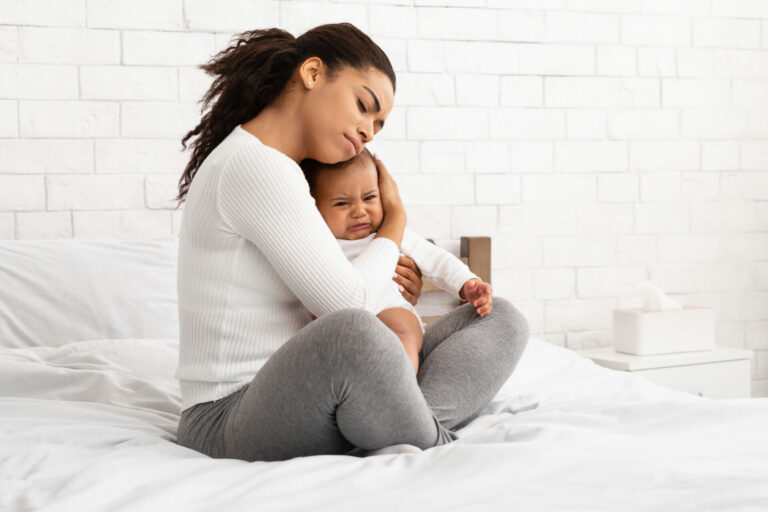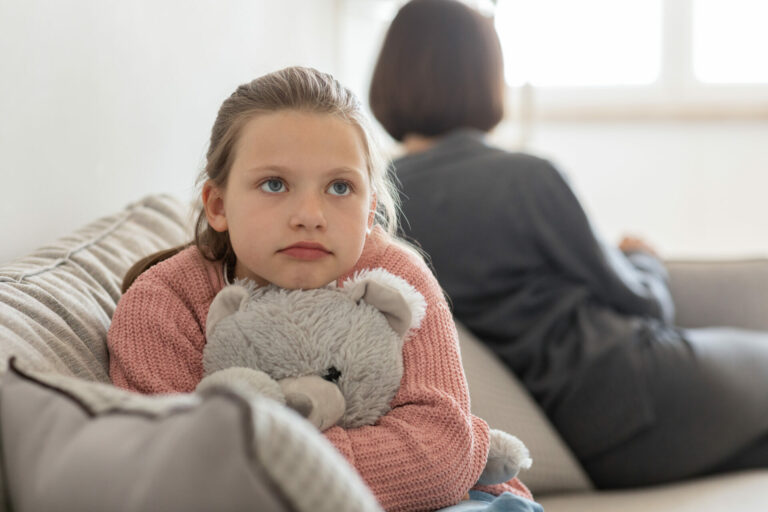Talking with an adopted child about “first,” or “birth,” families can be difficult. The topic carries with it a lot of emotions for adoptive parents and for the child. Some adoptive parents choose not to tell their children about their birth families until they are older. Some parents are open about adoption from the beginning. Some parents have made peace with the story of their adoptive child. Some have not. What adoptive parents need to know is that how they talk about their child’s birth parents matters.
How parents talk about birth parents matters because it affects how the adopted child views adoption. Adoption brings with it inherent loss and grief (Gobbel, 2022). Parents who talk about birth parents in a positive manner can help children know that they are loved, both by their birth parents, and by their adoptive parents (American Adoptions, n.d.). This frames adoption in a positive light, as an act of love, not an act of negligence, or even violence (e.g. “taking” the child away).
Birth parent descriptions matter. Parents can inadvertently add to grief if they talk about birth parents as “bad” or “wrong” (Children First FFA). A better way to frame the matter is to say that “parents who may have been dealing with adult problems … were not ready to care for a child” and that current parents now have the privilege and responsibility of caring for the child (American Adoptions, Dudek, 2017). Adoption is plenty hard. Talking about birth parents in a positive light makes room for an adopted child to acknowledge both the sorrow and the beauty of how they came to be part of their current family.
The way parents talk about birth parents is important because it also plays into the child’s identity. Birth parents are part of the child’s biological makeup (Bliss, 2017). When a child hears his or her parents speak negatively about the birth parents, the child may recognize that they are related to that birth parent and internalize that negativity. Talking about birth parents does not negate the role of current parents. Rather, it honors them, while making space for the child to pursue his or her full identity (American Adoptions, n.d.). As Susan Cain (2022) writes in her book Bittersweet, “The more [a person] accept[s] [their] own makeup, the better chance [the person has] of managing it.” Adoptive parents who welcome all parts of the child give a child the best chance possible to become a whole, healthy individual.
Birth parents or first families can be a tricky topic. Parents may need to do their own work around adoption before talking about it in depth with their kids (Gobbel, 2022). This is okay, and courageous, even for parents who came to adoption from hard places. Parents who do their own work are more comfortable talking about this sensitive matter, and therefore better able to co-regulate their kids (Wirta-Leiker, 2012). Talking about birth parents can then become a point of connection, rather than disconnection (American Adoptions, n.d.). This connection, in turn, can help build a safe relationship in which a child can share other difficult things.
Talking about birth parents with an adopted child is no easy matter. It is full of nuance, and quite frankly, emotional and mental work. When done carefully, and with concern and care, however, it can become a thing of bittersweet beauty, acknowledging both the grief and the comfort of adoption. How people talk about birth parents matters because those people matter, and so do their children.




